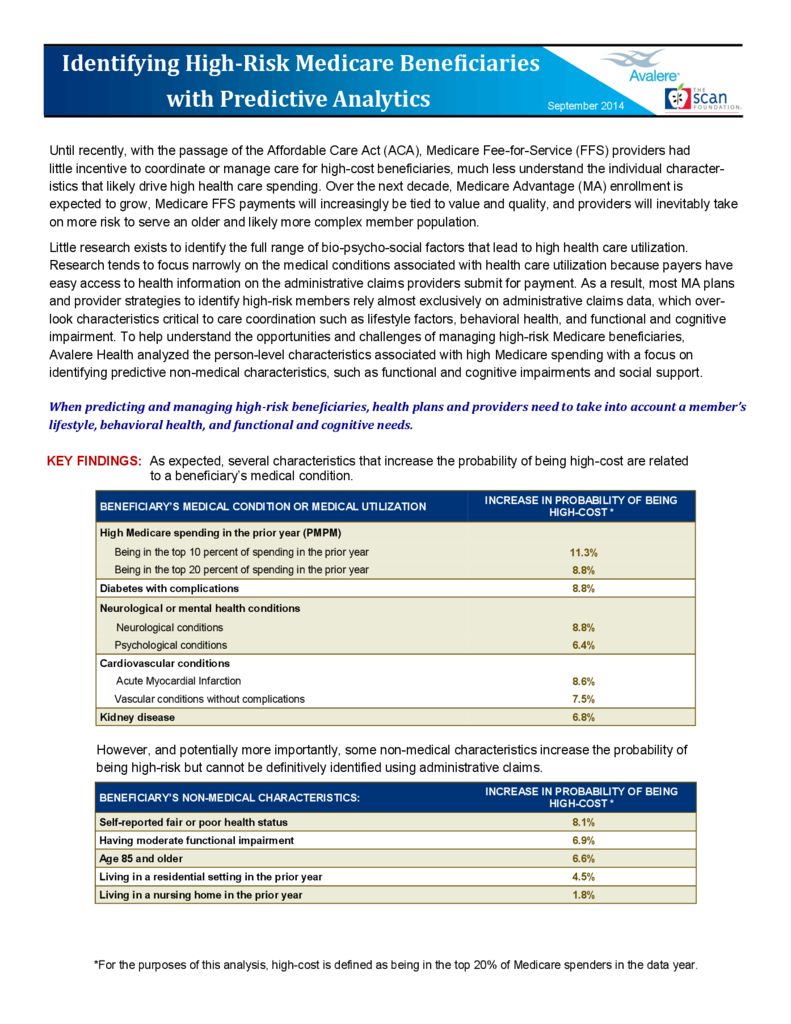Defining the Business Case for Targeted Care Coordination
summary
A white paper and series of briefs from Avalere Health produced with support from The SCAN Foundation explore the use of non-medical data to better coordinate care for high risk Medicare beneficiaries, which can lead to improvements in care while providing health plans a return on investment.
Date Updated: 09/30/2014Until the passage of the Affordable Care Act (ACA), Medicare Fee-for-Service (FFS) providers had little incentive to coordinate or manage care for high-cost beneficiaries, much less understand the individual characteristics that likely drive high health care spending. Over the next decade, Medicare Advantage enrollment is expected to grow, Medicare FFS payments will increasingly be tied to value and quality, and providers will inevitably take on more risk to serve an older and likely more complex member population…
Download the publication for all visuals and complete references.
Continue Reading
In this paper, the National Committee for Quality Assurance (NCQA) discusses prior integration efforts; introduces a model for integrated entities and a framework for assessing and promoting quality of integrated care; and explores the challenges to implementing and achieving the goals of person-centered, integrated care for Medicare-Medicaid beneficiaries. They use the word “framework” to describe the key concepts underlying the structure and process measures; it can also be expanded to include the content of performance measures as companions to the structure and process measures.
To succeed in this era of health system transformation, plans and providers bearing risk – in an accountable care organization (ACO) for example – will need strategies for managing a broad array of care needs for high-risk beneficiaries across multiple settings of care. Download this fact sheet to learn more.
Person-centered care works for older adults with chronic health conditions and daily living needs, but how does it apply to health care organizations? Is it financially sustainable? Is there a return on investment? This issue brief, based on a full report – Person-Centered Care: The Business Case – shows how person-centered care can result in fewer hospitalizations and emergency room visits while increasing one’s quality of life.


